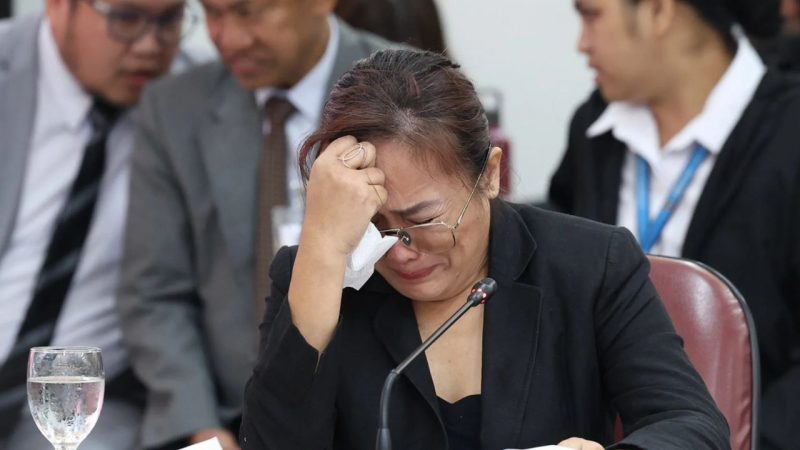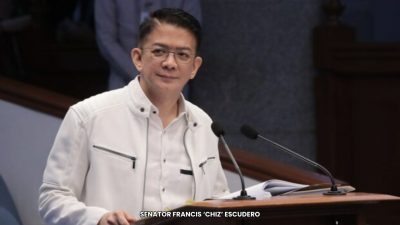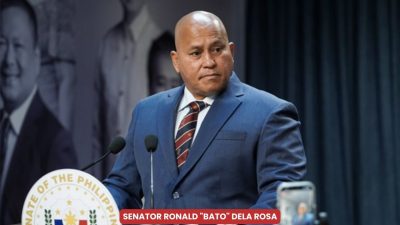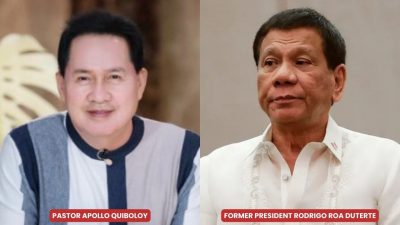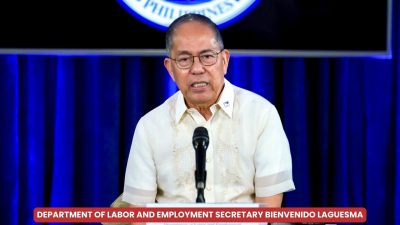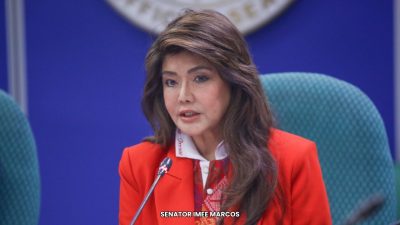By Junex Doronio
MANILA — In an unexpected development, retired police colonel and former Philippine Charity Sweepstakes Office (PCSO) General Manager Royina Garma revealed late Friday (11 Oct 2024) night that cash rewards ranging from P20,000 to P1 million were paid for every suspected drug pusher killed during the previous administration’s campaign against illegal drugs, led by former President Rodrigo Roa Duterte.
With this revelation, House QuadComm co-chair and Manila 6th District Representative Benny Abante stated that lawmakers would once again invite FPRRD, as Garma’s testimony directly implicated him in the “bloody drug war.”
In her affidavit submitted to the House panel, Garma disclosed significant information involving Duterte and his long-time aide, Senator Christopher “Bong” Go, regarding their roles in overseeing and coordinating anti-drug operations.
Garma recounted a May 2016 meeting where Duterte instructed her to help find a Philippine National Police (PNP) officer to lead a national anti-drug task force, modeled after the “Davao Model,” a system rewarding police for killings.
“The Davao Model involves three levels of payments or rewards. First is the reward if the suspect is killed. Second is the funding of planned operations (COPLANS). Third is the refund of operational expenses,” Garma said.
She said she recommended her upperclassman at the PNP Academy, Police Col. Edilberto Leonardo, who was then with the Criminal Investigation and Detection Group (CIDG).
Leonardo was soon brought into the fold and tasked with forming a specialized task force after meeting with Duterte.
According to Garma, Leonardo’s role expanded, and a formal proposal for the task force’s operations was submitted to Duterte through Go.
“Leonardo subsequently informed me that he had prepared a proposal, routed through Bong Go, outlining the task force’s operations, which would encompass Luzon, Visayas, and Mindanao,” she explained.
Leonardo and his operatives began executing their plans, with Garma serving as an intermediary between him and Go during the initial months.
Garma’s affidavit also shed light on the inner workings of the task force, which Leonardo led.
She revealed that the task force had a reward system where only killings would earn payments.
Garma explained that the funds were funneled through the bank accounts of Peter Parungo, a former detainee, and meticulously tracked by Leonardo’s team.
Further implicating Go, Garma said that Leonardo would report all fatalities from police operations directly to the then Special Assistant to the President (SAP) for inclusion in his weekly reports, ensuring operational expenses were refunded.
“Si Leonardo ang may final authority para magpasya kung sino ang isasama sa listahan ng mga drug personalities at para i-classify ang kanilang threat levels, pati na ang discretion na tanggalin ang mga indibidwal sa listahan,” she added.
Garma also disclosed that the operations extended beyond the streets to key penitentiary systems, with drug activities allegedly originating from the Bureau of Corrections (BuCor).
She recalled overhearing discussions between Leonardo and other officials about drug activities at the Davao Penal Colony, specifically mentioning BuCor officers involved in the drug trade who were later killed.
Garma affirmed her willingness to provide further testimony and additional details as the Quad Committee’s investigation into drug-related EJKs continues.
Ia/mnm

